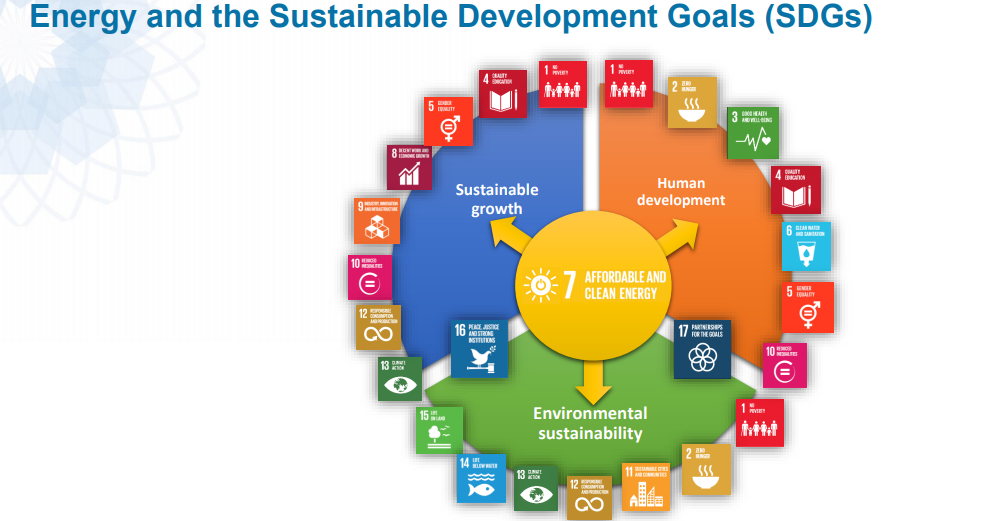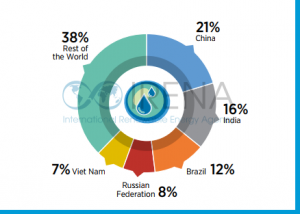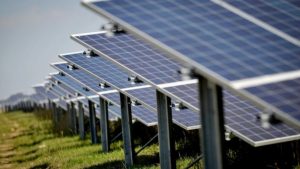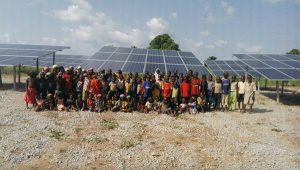Sustainable development is an approach to development that takes the limited resources of the earth into consideration and hereby respects the planetary boundaries. Communities that opt to go green in their power generation and supply will strengthen global labours to protect mother earth and her occupants, writes OGN.
The Sustainable Development Goals (SDGs) were adopted by the United Nations in 2015 after the time-frame for the Millennium Development Goals (MDGs) expired in that same year.
The SDG is essentially a ‘to-do’ list of the absolute essentials that the UN estimates will address and end the root causes of global poverty as well as bring universal development. This broad list contains 17 itemized goals which cut across all conceivable spheres of human life like health, social justice, sustainable development, availability of clean drinking water, innovation and climate change, as well as access to sustainable, reliable, clean and modern energy.
In this long list of goals, there is the potential to overlook an obvious thread that binds those lofty ambitions, and which is renewable energy (RE).
According to the International Renewable Energy Agency (IRENA) which broke down the 17 SDGs into three very broad categories namely: human development, sustainable growth and environmental sustainability, with some goals crisscrossing into several segments at once, RE strategically ties into all three categories.

While several other non-governmental groups have championed the cause of RE as a platform to speedily and effectively ensure that the SDGs come to a successful fruition, RE in truth still has its detractors globally. There are those who either see it as ineffective and inefficient, and there are others who view it as a dangerous disruptor to the current ways of doing business.
But the argument often put forward by the former group continues to be made redundant by the progress made by RE. This is even made more important and forceful by several globally recognized companies like Coca Cola, Apple and HP who voluntarily opt to power their operations 100% with RE.
Also, the suggestion that RE is a business disruptor holds some truth to it and rightly so because for instance, if a segment of the global business sector such as transportation starts to run on RE, that then means that a huge portion of the fossil fuel market will collapse along with the millions of jobs that it currently supports directly.
But then, this is only half the picture however, because RE too will create jobs and is in fact doing so at a much faster rate than the fossil fuel industry is doing. Already in the USA, more people are employed by RE than are employed in the fossil sector. The American Department of Energy, indicated in its 2017 U.S. Energy and Employment Report that 3,384,834 Americans were directly employed by the clean energy industry while 2,989,844 Americans were directly employed by the fossil fuel industry and the outlook continues to look positive for the clean energy sector.

Further, IRENA estimated that doubling the shares of global RE would increase the global GDP by 1.1 per cent, increase welfare by 3 per cent, and create 24 million new jobs by 2030.
On the human development index front, renewable energy is a veritable tool that can help empower society’s most vulnerable citizens which are most often rural dwelling women and children. And this can be done by simply providing energy saving cook stoves to change the lives of the over 3 billion people who cook over open fires.
The World Health Organization (WHO) had posited that around 4 million people die prematurely from illnesses attributable to the household air pollution from cooking with solid fuels, therefore, communities and homes who switch to utilizing RE methods to their daily activities – cooking and lighting especially, can cut down these figures greatly and reduce the number of people that die in a very short time.
However, the truth is that RE sources are not the silver bullet that could end all the world’s development problems, but they offer pragmatic and tenable paths to finding a lasting solution to the many injustices that global abuse of the earth has brought forward in the world today, and countries and continents like Nigeria and Africa should not blink in adopting them more aggressively and ambitiously in their efforts to develop sustainably.





